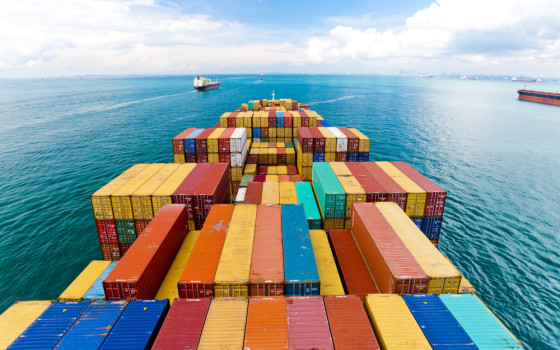
Europe's trade relations with China and the United States.. An expected agreement with Beijing to cancel electric car fees.. and a readiness to respond to any trade tensions with Washington after Trump takes office

- Europe and Arabs
- Saturday , 23 November 2024 10:21 AM GMT
Washington - Moscow - Brussels: Agencies - Europe and the Arabs
The Russian news agency "Novosti" reported that Brussels and Beijing may agree to cancel customs duties on Chinese car imports to Europe.
The agency confirmed that the head of the International Trade Committee in the European Parliament, Bernd Lange, said that they are about to reach an agreement in which China commits to offering its electric cars in the European Union at a price not less than the minimum price for similar goods, explaining that this would eliminate the problem of distorting competition through unfair support, which led to the imposition of duties from the beginning.
Lange indicated that he does not share Germany's concerns about possible retaliatory measures, noting that Beijing initially objected to the duties imposed on electric bicycles but later accepted them.
Recent months have witnessed several major trade disputes between China and the European Union, which the media called trade wars.
It is noteworthy that in late October, the European Union finally approved the decision to impose additional duties on electric car imports from China, which will reach 35.3%, but China challenged this decision at the World Trade Organization, so Brussels decided to continue searching for alternatives to this decision with Beijing.
The European Union Ambassador to Washington, Yvette Nelopchina, announced that the bloc is "ready to respond" in the event of new trade tensions with the United States, as US President-elect Donald Trump is expected to impose customs duties upon his return to the White House.
Nelopchina said - at a press conference - "We are in a transitional period for Brussels and Washington, and we are taking advantage of this moment to focus on the issues on which we believe we can cooperate" with the new US administration.
She stressed that, however, "sometimes moments of tension" with the United States can be expected, and "if tensions arise at the trade level, the European Union will be ready to respond." "It's simple, if (Donald Trump) imposes tariffs, we will respond, but we must treat him like any other American partner: talk and make sure we can reach a common agenda," Neluposhna said.
Neluposhna expressed her hope that a "positive agenda" could be established in the event of tensions, recalling that "we are here to build solid foundations for continued transatlantic cooperation," whether on trade, security or tax issues.
The president-elect has made no secret of his desire to reimpose tariffs of 10 to 20 percent on all products entering the United States, considering them a tool for future trade negotiations but also a means of financing the significant tax cuts he seeks to implement.
Bilateral trade between the United States and the European Union represents more than 40 percent of global GDP and would be affected by the imposition of tariffs.
The European Union is the largest trading partner of the United States in terms of value, and the US trade deficit with the EU is the second largest in terms of size, after China.
The United States will need to work with the European Union and other allied trading partners to effectively counter China's market-busting economic practices, Neluopshene said.












No Comments Found